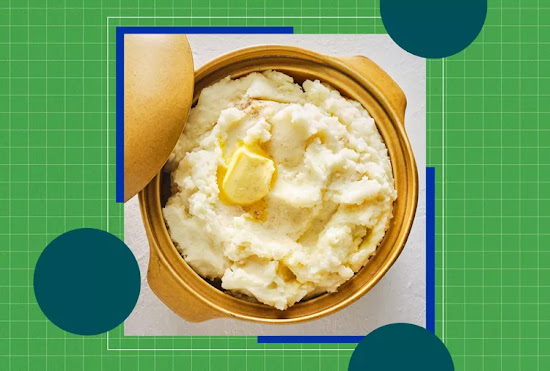Embracing Nutrient-Rich Indulgence: 7 "Bad" High-Calorie Foods Recommended by Dietitians
7 "Bad" High-Calorie Foods to Add to Your Diet, According to Dietitians
In a world obsessed with calorie counting, dietitians reveal the nutritional gems hiding in so-called "bad" high-calorie foods. Let's debunk the myths and celebrate these wholesome additions to your diet.
Calorie Conundrum: A Deeper Dive
In the relentless pursuit of healthy eating, the focus on calorie density often overshadows the nutritional richness of certain foods. Dietitians emphasize that calories alone shouldn't dictate our dietary choices. Understanding the nutrient composition is key to appreciating the positive impact these seemingly high-calorie foods can have on your health.
1. Whole Eggs: Unscrambling the Truth
• Misconception: Criticized for fat and cholesterol.
• Truth: Sandra Chavez, M.S., RDN, highlights the nutritional powerhouse of eggs, providing protein, vitamins A, D, E, and folate. Cholesterol in eggs doesn't significantly impact "bad" cholesterol levels.
2. Whole Milk: The Full-Fat Revelation
• Misconception: Labeled as "bad" due to higher fat content.
• Truth: Amy Goldsmith, RDN, defends whole milk's reputation, emphasizing its richness in essential amino acids, vitamin D, calcium, and zero added sugar. A high biological value protein source.
3. Pasta: Breaking the "Refined" Myth
• Misconception:* Often considered a "refined" food.
• Truth: Despite the reputation, pasta offers fiber, protein, iron, and B vitamins. Brooke Baird, RDN, urges mindful preparation, emphasizing the nutritional value of both white and whole-wheat options.
4. Potatoes: The Unsung Hero
• Misconception: Overlooked due to high glycemic index.
• Truth: Brooke Baird highlights potatoes' rich fiber, potassium, phosphorus, and modest carbohydrate content. An economical addition to your grocery cart with substantial nutritional benefits.
5. Cheese: A Nutrient-Rich Indulgence
• Misconception: Avoided due to high-calorie content.
• Truth: Krista Wale, RD, LDN, praises cheese for supporting bone health, muscle maintenance, and lactose intolerance tolerance. A source of protein, calcium, and essential nutrients.
6. Nuts and Seeds: Power-Packed Nutrition
• Misconception: Energy-dense, often avoided.
• Truth: Christine Byrne, M.P.H., RD, encourages embracing nuts for heart-healthy fat, fiber, magnesium, and selenium. Peanut butter, rich in magnesium and vitamin B6, is a versatile, nutritious choice.
7. Salad Dressing: The Dressing Dilemma Debunked
• Misconception: Limited due to calorie addition.
• Truth: Alyssa Smolen, M.S., RDN, CDN, debunks the low-fat craze. Salad dressings, especially with unsaturated fats, enhance nutrient absorption. The inclusion of fats is vital for consuming fat-soluble vitamins A, K, E, and D.
Decoding the Bottom Line: Beyond Calorie Counting
Dietitians emphasize that categorizing foods solely based on calorie content overlooks the broader picture. Consider the nutrient composition—fiber, heart-healthy fat, vitamins, and minerals. Cutting out high-calorie foods solely for their energy density may lead to missing out on essential nutrition benefits.
In conclusion, let's redefine our approach to nutrition, celebrating the wholesome contribution of these "bad" high-calorie foods. Embrace the nutrient-rich indulgence and make informed choices for a balanced, healthier lifestyle.
Disclaimer:
The information presented in this article is for informational purposes only and should not be considered as a substitute for professional medical advice, diagnosis, or treatment. Each individual's health condition is unique, and dietary needs may vary. Before making significant changes to your diet, it is crucial to consult with a qualified healthcare professional or a registered dietitian.
The insights provided regarding "bad" high-calorie foods are based on the opinions of dietitians and nutrition experts. Dietary recommendations may vary based on personal health conditions and dietary preferences.
Original News Article Link:
For a more comprehensive understanding and access to the original source of this information, please refer to the news article: [7 "Bad" High-Calorie Foods to Add to Your Diet, According to Dietitians]
Your health is a priority, and informed decisions should be made in consultation with healthcare professionals to ensure individual needs and circumstances are considered.




Comments
Post a Comment